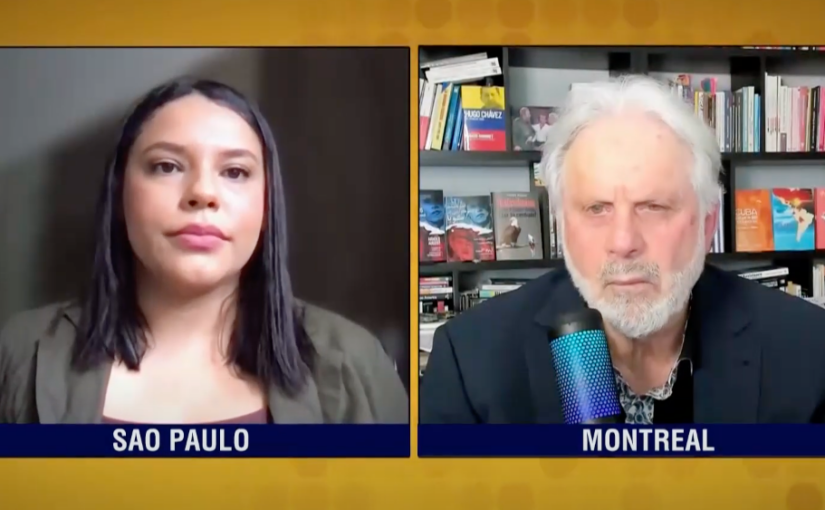Brazilian President Lula’s widely anticipated visit to China has now been rescheduled for April 11-14, following his recovery from the influenza and pneumonia that forced a postponement. Whilst a number of bilateral agreements are due to be signed during that visit, a scheduled business seminar between the two countries went ahead as planned, already resulting in more than 20 agreements, most significantly regarding moves to de-dollarize Sino-Brazilian trade, in favour of a move to national currencies.
On Iran’s Press TV, Kaveh Taghavi was joined by Camila Escalante of Kawsachun News and Montreal-based author and journalist Arnold August to discuss the significance of this move, which, Camila notes, also coincides with the confirmation of the appointment of Dilma Rousseff, former Brazilian President and Lula’s Workers’ Party (PT) comrade, as President of the BRICS’ New Development Bank (NDB), headquartered in Shanghai, as well as the establishment of diplomatic relations between China and Honduras.
Arnold August situates these developments in the wider context of the loss of US hegemony and the growth of the BRICS, with an increasing number of developing countries seeking membership. He explains how the People’s Bank of China (PBOC) is able to work for the well-being of the Chinese people and people around the world, and cites the recent Beijing agreement between Iran and Saudi Arabia to repair their relations as another example of China’s increasing role in world affairs.
The video of their discussion is embedded below.

